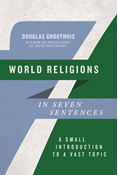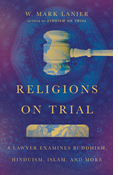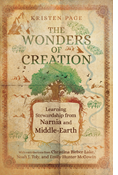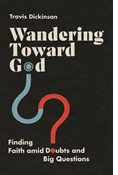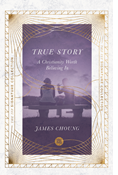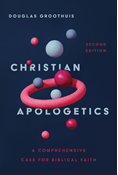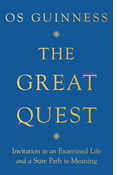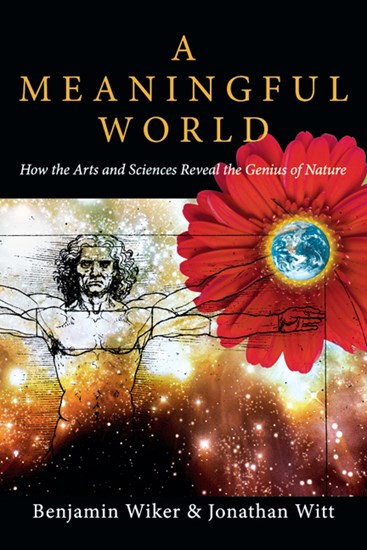
|
A Meaningful World
paperback
|
- Length: 257 pages
- Dimensions: 6 × 9 in
- Published: July 12, 2006
- Imprint: IVP Academic
- Item Code: 2799
- ISBN: 9780830827992
-
Other Retailers:
Amazon*
*affiliate partner
Meaningful or meaningless?
Purposeful or pointless?
When we look at nature, whether at our living earth or into deepest space, what do we find?
In stark contrast to contemporary claims that the world is meaningless, Benjamin Wiker and Jonathan Witt reveal a cosmos charged with both meaning and purpose. Their journey begins with Shakespeare and ranges through Euclid's geometry, the fine-tuning of the laws of physics, the periodic table of the elements, the artistry of ordinary substances like carbon and water, the intricacy of biological organisms, and the irreducible drama of scientific exploration itself.
Along the way, Wiker and Witt fashion a robust argument from evidence in nature, one that rests neither on religious presuppositions nor on a simplistic view of nature as the best of all possible worlds. In their exploration of the cosmos, Wiker and Witt find all the challenges and surprises, all of the mystery and elegance one expects from a work of genius.
"A Meaningful World is astounding, breathtaking! This is a book about both the beauty of science and the beauty of creation, a book I wish I had as an undergraduate taking science courses. Wiker and Witt draw us beyond design to the sheer grandeur, elegance and deep intelligibility of nature, all of which bespeak a creative Genius. It will help overcome the residual fear of science that plagues all too many devout believers, and instill a sense of childlike wonder at the splendor of our world. A Meaningful World admirably answers the call of Pope Benedict XVI to see the glory of God's wisdom, the Divine Logos, permeating creation. I can't wait to get this into the hands of my own teenagers, and even my college grads."
"Drawing on the works of Shakespeare, Euclid, Lavoisier and others, A Meaningful World draws parallels between the genius of these men and the genius evident in nature. I am not exaggerating much to say that A Meaningful World is in the same class as the works of human genius its authors describe. It displays rare depth and breadth. Scientists should read this book to regain their justification for doing science, and poets should read it to regain a ground for the meaning of their texts."
"In a world where materialism fails and where intelligent design is evident, how should we think about ourselves in the grand scheme of things? A Meaningful World masterfully answers this question, ramping up the cultural revolution begun by Phillip Johnson in the 1990s."
"A Meaningful World is a wise and witty romp through the fallacies of reductionism. It is illustrated by charming examples that show how literature and science both teach us that we live in a world full of meaning, not the spiritually dead world in which the materialists would confine us."
"A Meaningful World is simply the best book I've seen on the purposeful design of nature. In sparkling prose Benjamin Wiker and Jonathan Witt teach us how to recognize genius, first in Shakespeare's plays and then in nature. From principles of geometry to details of the periodic table, the authors portray the depth, elegance, clarity and pure cleverness of a universe designed to nurture the intelligent life that one day would discover that design. A Meaningful World recovers lost purpose not only for science, but for all scholarly disciplines."
"I have been reticent to affirm the value of the cosmological argument from design, but no longer. Benjamin Wiker and Jonathan Witt have convinced me that from literature to mathematics, physics to biology, the very phenomena of the world breathe intelligence. A Meaningful World is a masterful argument, a tour de force, framed with brilliance and wit. Here is a convincing case for a universe charged not only with meaning, but with the glory of God."
"A Meaningful World cleverly integrates the intricacy found in literary classics with the aesthetic beauty of scientific discovery and the unreasonable ability of the human mind to comprehend meaning in both. In this interesting book, we discover that meaning is inherent in nature at every level."
"It is fully as gratifying to hear from teachers and writers who know science and literature as well as theology and who use their energy to assign God his rightful place."
"A good book for the math or science lover."
"Several outstanding books argue for Intelligent Design. However, A Meaningful World explores newer ground. In this book the authors widen the focus to the meaning and genius that are evident all around us."
"A Meaningful World offers a compelling rebuttal to modern materialism and its reductionistic view of nature. The professional critics of intelligent design didn?t see this book coming, and are unlikely to have a ready response to its argument."
"Wiker and Witt submit: 'A poison has entered human culture. It's the assumption that science has proven that the universe is without purpose, without meaning.' This is the primary popular assumption the authors tackle in A Meaningful World."
CONTENTS
Acknowledgments
Prologue
1. Meaning-fulness and Meaninglessness
2. Hamlet and the Search for Meaning
3. Shakespeare and the Elements of Genius
4. The Geometry of Genius
5. The Periodic Table: A Masterpiece of Many Authors
6. A Cosmic Home Designed for Discovery
7. The Genius of the Elements
8. The Reemergence of the Living Cell
9. The Restoration of the Living Organism
10. The End of the Matter: A Meaningful World
Index



